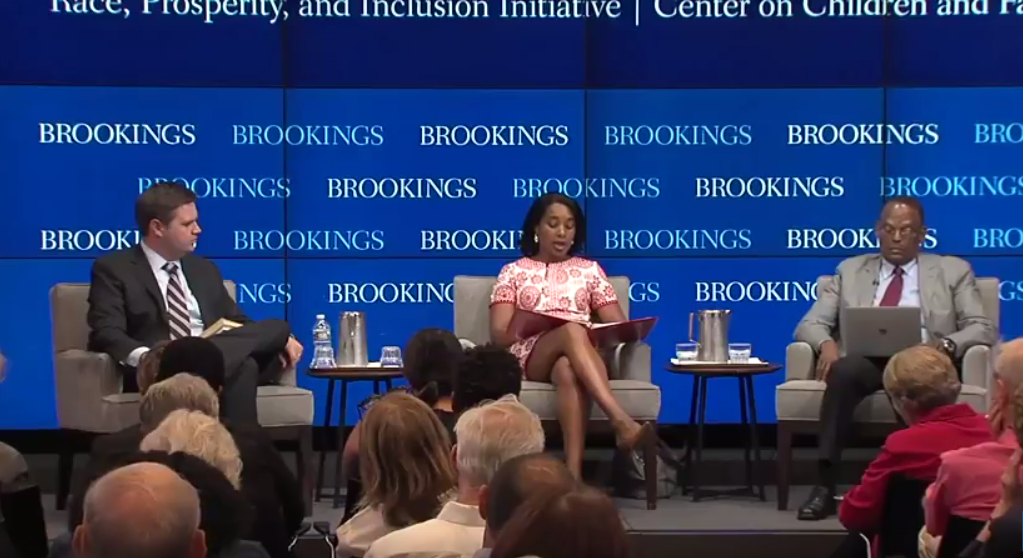Thoughts from J.D. Vance and William Julius Wilson on Race, Poverty, and Politics

J.D. Vance’s 2016 memoir Hillbilly Elegy, a personal account of growing up poor and white in Appalachia, has been a key reference point in the national conversation about rural poverty since the presidential election. But it has also triggered a backlash from critics who say the book offers a narrow view of American poverty in which people remain poor mostly because they make bad decisions.
Last week, Vance sat down at the Brookings Institution with sociologist William Julius Wilson, author of the landmark 1976 book The Truly Disadvantaged about America’s inner city ghettos, to discuss how race, class, and culture all contribute to poverty in the U.S. The conversation, moderated by Brookings fellow Camille Busette, ranged from Wilson and Vance’s political differences to their shared experience of growing up in poor rural communities.
Wilson argued that he and Vance succeeded mostly because of luck and help from significant connections in the face of enormous structural barriers. And Vance reflected on how even when both of his parents briefly achieved middle class incomes, the issues in his family ran deeper than money.
“It fell apart so quickly, and even in the midst of that financial security life was so chaotic and so unstable,” said Vance. “One of the things that taught me is that the problems that a lot of poor families face aren’t purely income-related.”
The two agreed that prominent thinkers on the left and right don’t adequately consider culture when talking about poverty, with liberals focused too much on structural factors like inequality and conservatives focused on individual responsibility. But Wilson worried that Hillbilly Elegy gives too much credence to the idea that poverty can be beaten by making good decisions.
“I wish that J.D. had focused more on the structural barriers that exist no matter what choices you make,” said Wilson. “Given the American belief system on poverty and welfare, which already puts a heavy emphasis on the individual, those personal explanations like the one’s in J.D.’s book are bound to overshadow any other arguments.”
Busette kept the conversation firmly on thorny issues of race and class, asking how the experience of being poor and jobless is different for white and black Americans. Wilson and Vance agreed that poor unemployed blacks are worse off – but also that explicitly race-conscious policies would not be politically viable in 2017.
“We know that concentrated poverty is a particularly bad form of poverty, and we know that it disproportionately affects blacks because of housing policy, past and present,” said Vance. “But I think we need to broaden our vocabulary to talk about the full spectrum of disadvantage, to include disability, age, location, family history, and more.”
The two concluded by pushing for solutions that could unite poor blacks and poor whites, in rural and urban communities.
“We’ve got to start to focus on coalition politics,” said Wilson. “We have to develop a sense of interdependence where groups come to recognize that they can’t accomplish goals without the support of other groups. We can’t give up on the white working class.”
